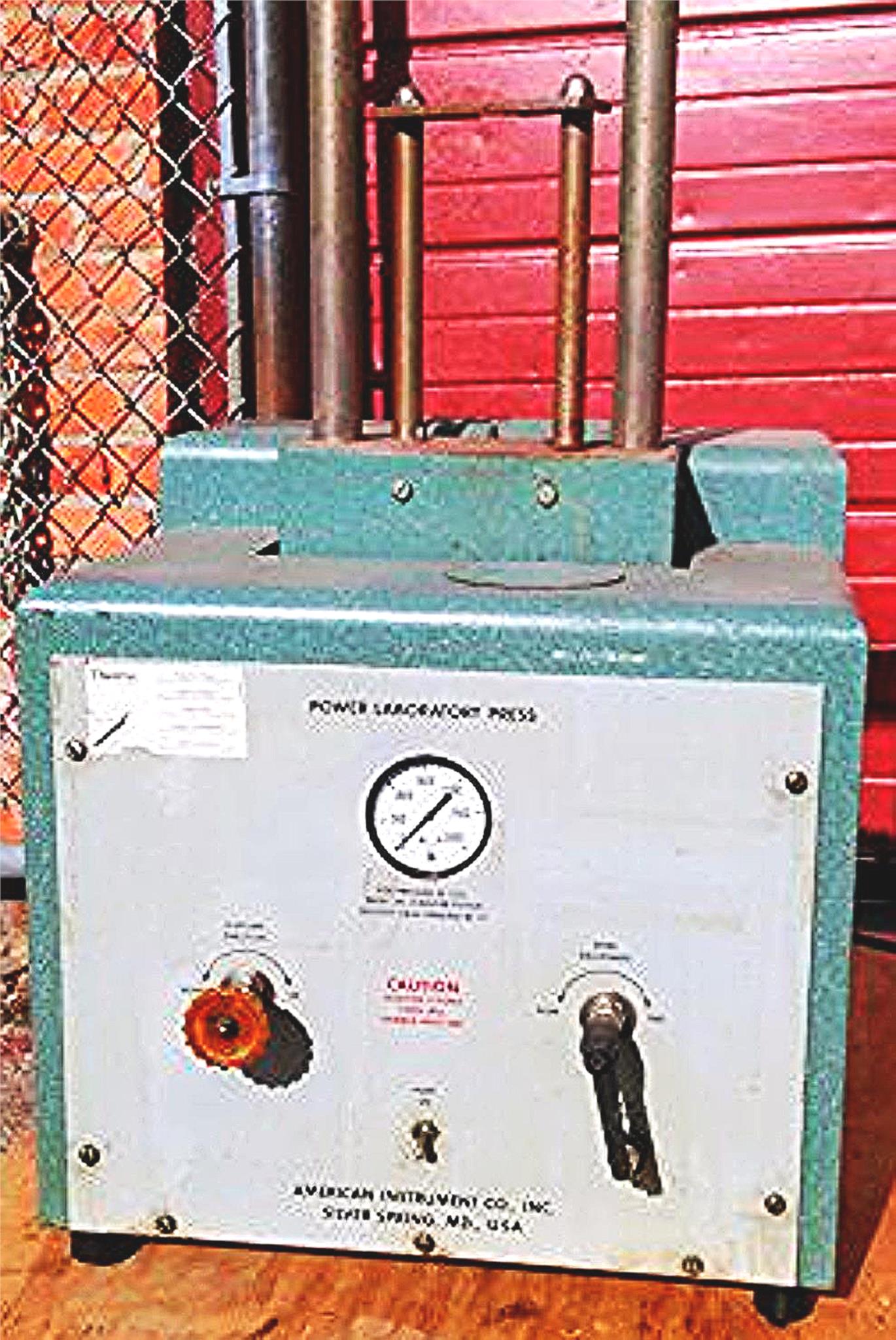SLM AMINCO FRENCH PRESSURE CELL LABORATORY PRESS 3000psi Pressure WATCH VIDEO
SLM AMINCO FRENCH PRESSURE CELL LABORATORY PRESS 3000psi Pressure WATCH VIDEO
This listing is for a SLM AMINCO FRENCH PRESSURE CELL LABORATORY PRESS Number 7 with 3000 psi & Extra Pressure Cell as can be seen in the pictures.
Please feel free to watch a video of this specific AMINCO FRENCH PRESS working by clicking https://www.youtube.com/watch?v=pitc8phK258
This SLM AMINCO number 7 French Press was tested and performed fine.
Everything looks really beautiful inside this press, please check inside pictures.
This hydraulic French press has no leaks.
We were told it wasn't used much at all, it just sat in storage for so long you can see some oxidation on the outside, inside it really looks really as if very rarely used as you can see from the pictures.
- 120 volts Standard Outlet
- 100 Watts
Bar none, these units are the best piece of laboratory equipment for isolation of thermally sensitive or difficult to solubilize prokaryotic or eukaryotic fusion proteins!
Our staff has completely inspected the unit to insure integrity of the hydraulics, electronics, and pressure cell.
Press case is painted with rust proof oil-based pain. Hydrallic fluid is full with hydraulic fluid--Mobil DTE26.
Sale of this Operational Unit Includes:
SLM Aminco French Press Part No. 7.
120V Power Cord.
FRENCH Presses are the primary sample preparation tools in protein studies, extraction of nucleic acids and cell disruption of various prokaryotic and eurkaryotic cells, among others.
The press provides a rapid, inexpensive,and effective mechanical means for gentle disruption of cell membranes and cell walls including nuclear membranes and mitochondrial membranes.
This pressure-induced process results in more uniform and complete disruption than possible with other mechanical, ultrasonic, or harsh chemical methods.
These units are particularly effective for isolation of often insoluble bacterial fusion proteins.
This FRENCH Presses can exert of up to 3,000 psi of internal pressure resulting in excellent performance.
This hydraulic motor Driven Laboratory Press is easy to operate and offers the advantages of dual-range, single control pressure selection.This provides a regulated working pressure throughout the entire operating stroke, resulting in uniform and complete disruption. Fine control of the internal cell pressure expands and extends the range of the system for use in a variety of different applications.
Specifications
PRESS part no. FA-078A
Height
Weight (net) 340 lbs
Weight (shipping) 389 lbs
Dimensions
Power Required 115 V, 60 Hz, 50 Hz
Applications
• Enzyme preparation and isolation
• Cell extract preparation
• Bacterial and plant tissue disintegration
• Recovery of intercellular proteins and nucleic acid
• Preparation of viral antigens for EIA test kits
• Membrane preparation for phizobia and pseudomonads
• Disruption of cells for pigment analysis.
The French pressure cell press, or French press, is an apparatus used in biological experimentation to disrupt the plasma membrane of cells by passing them through a narrow valve under high pressure.
The French Press can also be used for disintegration of chloroplasts, homogenates of animal tissue and other biological particles.
It is capable of disrupting cell walls while leaving the cell nucleus undisturbed. The French press was invented by Charles Stacy French of the Carnegie Institution of Washington.
The press uses an external hydraulic pump to drive a piston within a larger cylinder that contains the liquid sample.
The highly pressurized sample is then squeezed past a needle valve. As the sample passes through the valve, the fluid experiences shear stress anddecompression, causing cellular disruption.
The major components of a French press are made of stainless steel to prevent sample contamination.
A French press is commonly used to break the resilient plasma membrane and cell walls of bacteria and other microorganisms for isolation of proteins and other cellular components. The disruption of cells in a French press generates 'inside-out' membrane vesicles which are required for many in vitro biochemical assays. The cell is typically chilled overnight before use to preserve enzymatic activities.
With a French press, the shear force can be carefully modulated by adjusting the piston pressure.
The Press provides a single pass through the point of maximum shear force, limiting damage to delicate biological structures due to repeated shear, as occurs in other disruption methods.
Stock New# 212601
Couldn't load pickup availability
Low stock: 1 left
View full details















































